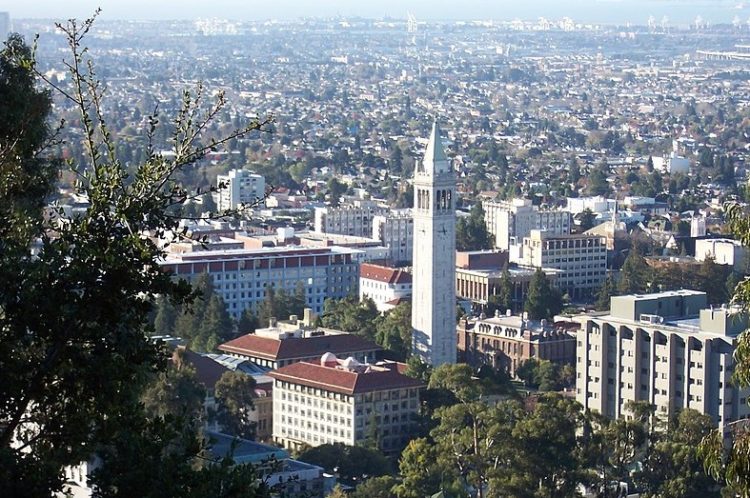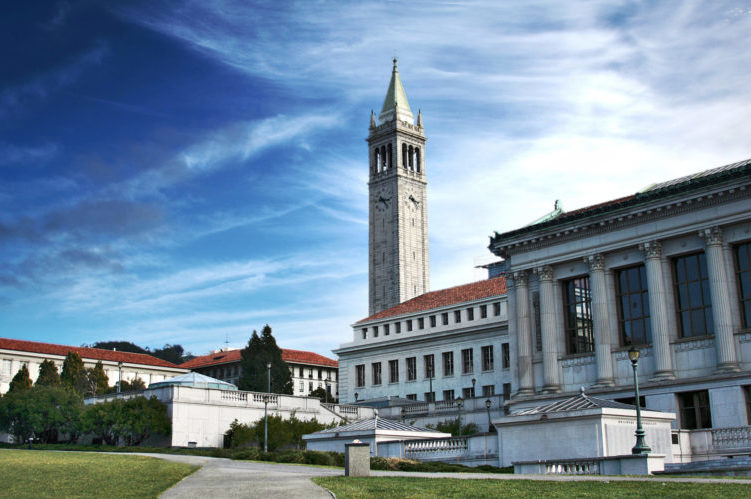Table of Contents
How Does UC Berkeley Evaluate Applications?
You’ve heard about this idea called a “holistic” review or “comprehensive” review when it comes to college admissions, right? Well, it’s one of those terms that gets thrown around a lot, and honestly, it’s pretty vague. So let me demystify this for you.
There are 14 admission factors that all the UCs consider when evaluating their applicants. On top of these standards, Cal takes a holistic approach to admissions. In other words, they look at both academics and personal attributes.
Personal attributes is the often overlooked KEY to successfully getting into a place like Berkeley. More on this later.
Check out the 6 criteria that Berkeley specifically deemed as important:
- Grades, GPA, and rigor of coursework
- Standardized tests: SAT/ACT (with writing), AP exams. And, SAT Subject exams
- Note: while SAT Subject exams are not required, having one can positively impact your application. In fact, Berkeley’s College of Chemistry and the College of Engineering highly recommend that you take Math level 2 and a science test.
- Personal Qualities
- Contributions to the intellectual and cultural vitality of the campus
- Achievement in academic enrichment programs (think: Cosmos, ATDP, RSI, etc)
- Other evidence of achievement.
Think about this. 2 out of 6 admissions factors are extremely academic — cold, hard facts that can be seen via your transcripts and test scores. Basically, numbers that summarize you as an applicant.
Of course, because Cal is so selective, it is vital that your academic stats are nothing short of stellar (check out our Berkeley Acceptance Rates post to get an idea of where you stand).
However, there are literally 4 other factors that your transcript and test scores do not illuminate. And if you think about it, this is actually a great thing. Let’s take a look at why this is.
What Does UC Berkeley Look For In Applicants?
By the time you’re applying to UC Berkeley, you probably won’t be able to change your test scores and GPA. What you can control, however, is how you come across to the admissions officers: not as a number, but as a human being.
- Who is the person behind the test scores and grades and activities?
- What are your struggles and how did you overcome them?
- What opportunities were you given and how did you take advantage of them?
This is where your UC essays and activities lists come into play.
And because UC Berkeley doesn’t require teacher recs, your activities and responses to the personal insight questions are all the more important — they’re the sole window that admissions officers have into your personality, experiences, and life.
So now that you know the importance of essays and extracurriculars to get into UC Berkeley, let’s discuss what qualities these things should show about you.
Personal Qualities
All elite schools have their own vibe and mission that is core and specific to the school — and they look for students with personal qualities that align with this.
What qualities does UC Berkeley look for?
Take a look:
“Personal qualities of the applicant, including leadership ability, character, motivation, insight, tenacity, initiative, originality, intellectual independence, responsibility, maturity, and demonstrated concern for others and for the community are considered.”
So, that’s a list of seemingly random personal attributes. But, here’s a hint: Berkeley values leadership. If you want to get into Cal, it’s non-negotiable; you have to be a leader.
Leadership has long been a staple of Berkeley’s culture. In fact, in the 60’s, Golden Bears led the charge in the Free Speech Movement, challenging the campus’ restriction of freedom of speech.
Now, don’t worry; Cal isn’t expecting you to single-handedly lead a protest in support of the first amendment. However, they are expecting you to show demonstrated leadership.
But, here’s the thing: leadership isn’t just a title. So just snatching up that “president” or “chair” title really doesn’t mean anything if all you’re doing is hanging out and eating pretzels during club meetings.
What Berkeley actually wants when they mention leadership is a change-maker. You can definitely accomplish that by executing meaningful work as president or chair; however, leadership could also mean taking care of younger siblings or working a job to help your family.
Ultimately, Cal is looking for someone who has the ability — and burning desire — to lead others and make a difference.
So, why does all this leadership stuff even matter?
If after looking at your academics, extracurriculars, and achievements, the admissions officers are still on the fence… the personal qualities displayed throughout your UC essays will be an important deciding factor.
In short: your personal qualities can be the make or break.
Intellectual And Cultural Vitality
Two things here: intellectual AND cultural vitality. What do these even mean?!
Intellectual vitality means that you have a fiery passion for learning — for expanding your horizons. It means you have an innate curiosity that drives you to delve extremely in depth into your endeavors, whether that is lab research or athletics or community service.
Berkeley, in other words, wants passionate, curious students that will — without hesitation — take initiative to learn more and become more.
Cultural vitality, on the hand, comes from the perspective of wanting a diverse class, with diverse backgrounds, thoughts, and experiences.
How do you give EVIDENCE that you bring intellectual and cultural vitality to UC Berkeley? Again: your essays and activities list.
And if you look at the UC Personal Insight Questions, you’ll find that there are a plethora of opportunities to divulge this information.
For instance, if you look at prompt 4 and 6, both of these are practically begging you to talk about your intellectual curiosities. So do it! And with 6 more prompts to choose from, you will be able to easily find places to express intellectual/cultural vitality in your UC essays.
Achievement
Berkeley wants to accept students who have a history of success beyond the vacuum of a high school classroom, because those students are most likely going to also succeed as a Gold Bear. So, they’ll pay close attention to your achievements outside of school — both academic and non-academic. So what type of achievements are they looking for?
Well, let’s start with academic achievement. This could mean anything from research with a local professor to participation in prestigious summer programs like RSI and COSMOS. Conducting cutting-edge research — or even publishing a research paper — will make it quite evident to the admissions officer that you are not only deeply passionate about what you do, but also able to succeed at a high level.
But what if you live in an area that doesn’t have local colleges to research at? Or companies to intern at?
Don’t worry! Chances are, most of your peers won’t have access to these things either. UC Berkeley understands that not everyone has the same opportunities and resources. So, in the admissions process, you are always evaluated in a local context — you’re essentially competing with your classmates.
However, that doesn’t give you a free pass. The things you will do — despite the lack of resources — to continue pursuing your intellectual interests is still extremely important. For instance, if there are no local tech companies, perhaps you’ll find a remote internship. Or if there are no local biology professors, you could start your own research club. Really, the opportunities are endless!
Now let’s move on to “other evidence of achievement.”
This is all about excelling in your extracurriculars. These achievements could be about the originality you show through your creative endeavors, or the responsibility and maturity you show through family responsibilities, or perhaps it’s the impact you made volunteering for a community organization. Ultimately, Cal wants to see that you’re able to truly succeed in whatever endeavors you choose to pursue.
Getting Into UC Berkeley: The Bottom Line
Yes, GPA and test scores matter. A lot. If you don’t have the academic achievement, even the best written essays and stories will not pull you through.
On the flip side, having a great GPA and test scores don’t mean you’re in the clear, either. We’ve seen plenty of awesome students that are academically more than capable who end up getting rejected from top tier schools because they lack — or are unable to effectively showcase — the personal qualities that colleges are looking for. However, if your academic stats are at the right place, then the UC Personal Insight Questions are absolutely instrumental.
Because it is such a competitive university, applying to UC Berkeley can be quite intimidating. However, ultimately, if you have strong essays, demonstrated leadership, and stellar stats, it will be hard for admissions officers to overlook your passion and determination.
Have more questions about how you can distinguish yourself, how to get into UC Berkeley and become a Golden Bear? Ask us in the comments below!


